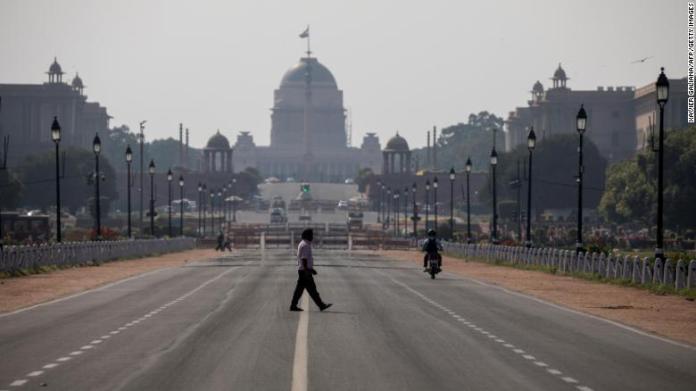By announcing a 21-day lockdown of the entire country on 24 March, including almost all forms of passenger transport across the country, Prime Minister Narendra Damodardas Modi acted with his characteristic boldness and efficiency. Never in history had a billion people been told to endure a complete lockdown at the same time, and with scarcely a day’s notice. The fact that such an unprecedented move took place without large-scale protests and disobedience of the instructions is testimony to the innate wisdom and maturity of the people of India. The lockdown needs to be extended by a further week or two, given the mass spread caused by a single event, the global congregation at Nizamuddin, Delhi, of the Tablighi Jamaat. Given the location where the mass meeting took place and the large number of participants (a total throughout March of around 12,000), it is difficult to see how the event was able to escape the attention of the authorities, but apparently it did, until some members of the over 1,100-member Indonesian contingent to the Tablighi Jamaat meeting showed severe symptoms of lung malfunction and died on a visit to Telangana. To the credit of the state government in Hyderabad, testing had been carried out on these individuals, and it would appear that it was news of their death that finally alerted those in authority to the grave situation, which had been created as a consequence of the assembly being held with no effort to ascertain the health status of the attendees. Judging by the large number of Covid-19 cases amongst the assembly, it would appear that some “super spreaders” were present, who mixed and mingled amongst the others and infected hundreds with the novel coronavirus. It is impossible to know if such was their intention, or whether these “super spreaders” had not known their condition while attending the event. Were it not for the damage to public health caused by the Tablighi Jamaat conference in the national capital, the chances are that a substantial relaxation of a lockdown that is already causing economic havoc could have been ordered. As matters stand, the country may be on a cliff edge, staring into the abyss of the community or third stage spread of the disease. Hence it will not be a surprise if the Prime Minister orders a continuation of the lockdown, even to the end of April. As PM Modi said, every life is precious and it is his objective to save as many individuals as possible from death at the hands of this deadly coronavirus.
The next phase of the lockdown needs to be such as will protect both lives as well as livelihoods. Institutions such as the CMIE are releasing data, which show a sharp spike in unemployment as a consequence of Covid-19 and its effects on the economy. In particular, the figures released by them claim that several of those in the 20-40 age
group have been particularly affected by the loss of jobs as a consequence of the lockdown. CMIE has temporarily stopped releasing data as a consequence of staff shortages caused by the lockdown, but its last estimate of unemployment for the month of April was in the same range as has been seen in the US for the month, which is well above 20%. Indeed, the estimate of jobs lost created by sampling was so sharply upwards in its trajectory that it overshot the range of the table giving the unemployment rate. It is certain that Prime Minister Modi and Finance Minister Nirmala Sitharaman will have more accurate figures on the economic consequences of the lockdown strategy adopted to curb the spread of the novel coronavirus. It is, therefore, to be expected that during this month itself, generous tranches of governmental assistance will be handed over to parts of the economy, in the manner in which parts of society identified as high risk in terms of propensity to spread the coronavirus are getting free food items delivered to their doorsteps in several parts of the country, including Delhi. This is the age of “smart” solutions, which is why PM Modi came up with the innovative plan of developing “smart” cities across India. A “smart” lockdown would ensure that jobs remain protected through a program of financial relief on the same scale as the historic measures taken by the Government of India to ensure that Stage 3 is avoided and the lives of the people are protected.
The next phase of the lockdown needs to be such as will protect both lives as well as livelihoods. Institutions such as the CMIE are releasing data, which show a sharp spike in unemployment as a consequence of Covid-19 and its effects on the economy. In particular, the figures released by them claim that several of those in the 20-40 age
इस शब्द का अर्थ जानिये
- Advertisement -

